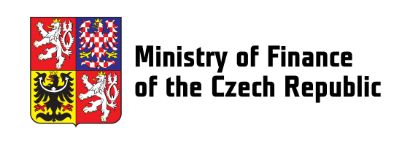CNB and MoF recommend not to set euro adoption date yet
The Czech National Bank and the Ministry of Finance have recommended not to set a target date for adopting the euro yet and thus not to attempt to enter ERM II in 2014. This joint recommendation, based on the “Assessment of the Fulfilment of the Maastricht Convergence Criteria and the Degree of Economic Alignment of the Czech Republic with the Euro Area”, was adopted by the government at its meeting on 18th December 2013.
As regards the fulfilment of the formal requirements for euro adoption (the “Maastricht criteria”), the Czech Republic is approaching a situation where it will be compliant with all these criteria except the exchange rate criterion. The Czech Republic is currently compliant with the criterion on price stability and the criterion on the convergence of interest rates. The Czech Republic is not currently compliant with criterion on the government financial position, as it is still subject to the excessive deficit procedure. However, it is expected to fulfil this criterion in 2014. The Czech Republic is not compliant with the criterion on participation in the exchange rate mechanism because, at its own decision, it does not yet participate in this mechanism.
The situation in recent years has been strongly affected by the impacts of the global financial, economic and subsequently European debt crisis. The Czech economy has stopped catching up with the euro area economic level. On the other hand, though, it is now showing increased business cycle alignment with the euro area. The main obstacles to the Czech Republic’s readiness to adopt the euro are still the unfinished process of real economic convergence, the still insufficient scope for the stabilising role of public budgets and some persisting shortcomings in the flexibility of the Czech labour market. Going forward, it is therefore necessary to ensure that the medium-term budgetary objective is met, to complete the reforms aimed at ensuring public finance sustainability, and to further increase the flexibility of the Czech labour market.
The financial market situation has calmed over the last year, but there is persisting uncertainty related to the debt problems of many euro area countries. This does not represent a favourable environment for early adoption of the euro in the Czech Republic. In addition, new European institutions and mechanisms which increase the costs of euro adoption have been established in response to the debt crisis in some euro area countries. It can be expected that euro area entry will also be conditional on participation in these new institutions and mechanisms. Based on the current information, the costs relating to joining the European Stability Mechanism (ESM) would be particularly substantial upon the Czech Republic’s entry into the euro area. At present, other initiatives are currently under discussion (the banking union) which are significantly adding to the uncertainty regarding the future conditions for euro area entry. Owing to the ongoing changes, the present and planned future shape of the framework for the functioning of the euro area is thus moving further and further away from the situation that existed when the Czech Republic entered the EU and committed to adopt the euro.
In this situation, therefore, it is impossible to conclude that the Czech Republic has made sufficient progress in laying the groundwork for euro adoption to allow it to set a target date for entry into the euro area.
Related Document to Download
Ondřej Šrámek
MoF spokesman
Marek Petruš
CNB spokesman
